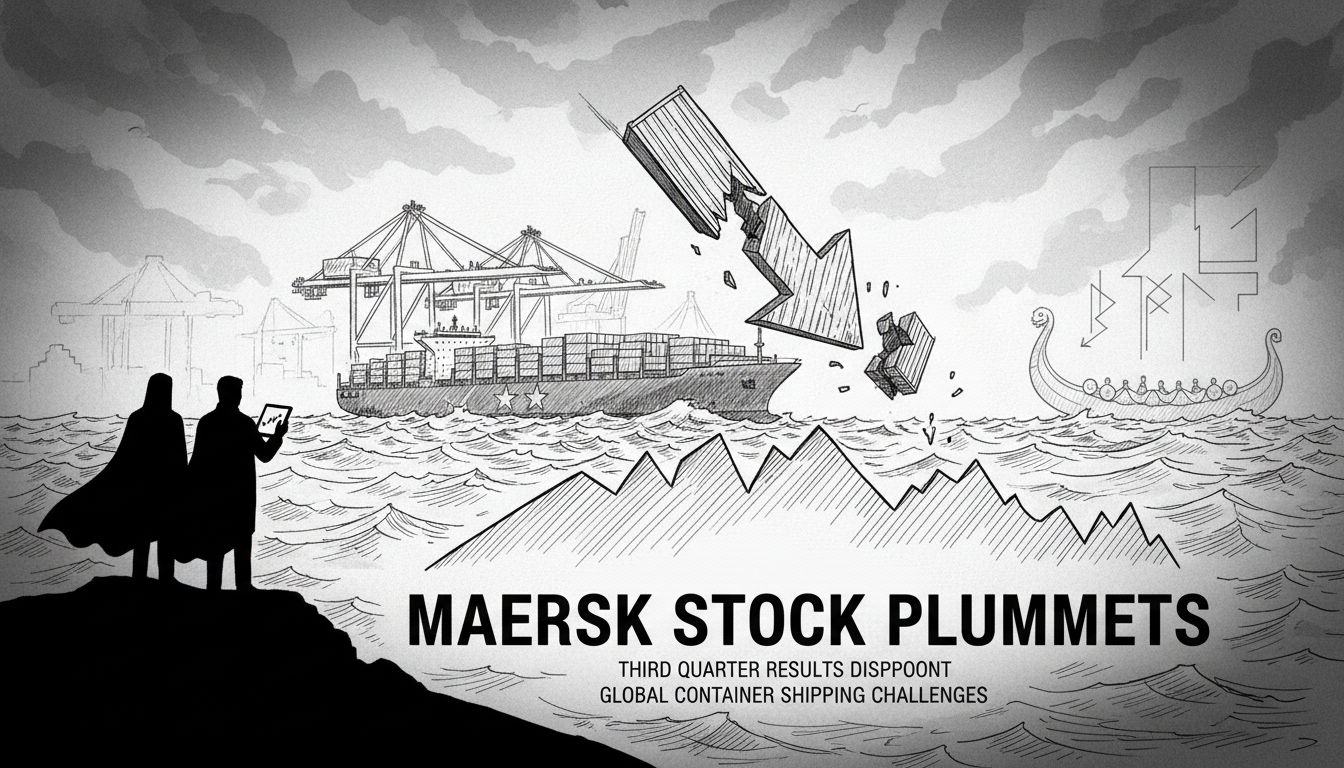Danish shipping giant Maersk saw its stock value tumble dramatically Thursday morning on the Copenhagen Stock Exchange. The company's shares dropped more than 6 percent during early trading. This sharp decline followed Maersk's release of its third quarter financial results earlier in the day.
Maersk remains one of Denmark's most important companies and a global leader in container shipping. The Copenhagen-based firm employs over 100,000 people worldwide. Its performance often serves as a key indicator for global trade health. When Maersk shares fall this dramatically, it typically signals concerns about international shipping demand.
The third quarter results revealed challenges facing the global shipping industry. Container rates have been declining from their pandemic-era peaks. Many shipping companies now face overcapacity issues as new vessels enter service. Consumer demand has also softened in key markets like Europe and North America.
This stock drop represents billions of Danish kroner in lost market value. Individual investors and institutional holders alike felt the impact. The Danish pension system, which holds substantial Maersk shares, likely experienced notable losses. Many Danish households have exposure to Maersk through their retirement accounts.
Why does this matter beyond Denmark's borders? Maersk operates the world's second-largest container shipping fleet. The company moves approximately one-fifth of all global container trade. When Maersk struggles, international supply chains often feel the effects. Businesses relying on global shipping may face continued uncertainty about rates and capacity.
The broader Nordic shipping sector frequently follows Maersk's lead. Competitors like Sweden's Wallenius Wilhelmsen and Finland's Neste may face similar pressures. Investors typically view Maersk's performance as representative of the entire maritime transport industry.
What happens next for Maersk? The company will need to address investor concerns directly. Management may provide updated guidance about fourth quarter expectations. Cost-cutting measures could be announced if the downturn persists. The coming weeks will reveal whether this represents a temporary setback or the beginning of a longer trend.
Global economic conditions continue to challenge shipping companies. High inflation and interest rates have reduced consumer spending power. Geopolitical tensions in key shipping lanes add another layer of complexity. Maersk's performance reflects these broader economic headwinds affecting international trade.

